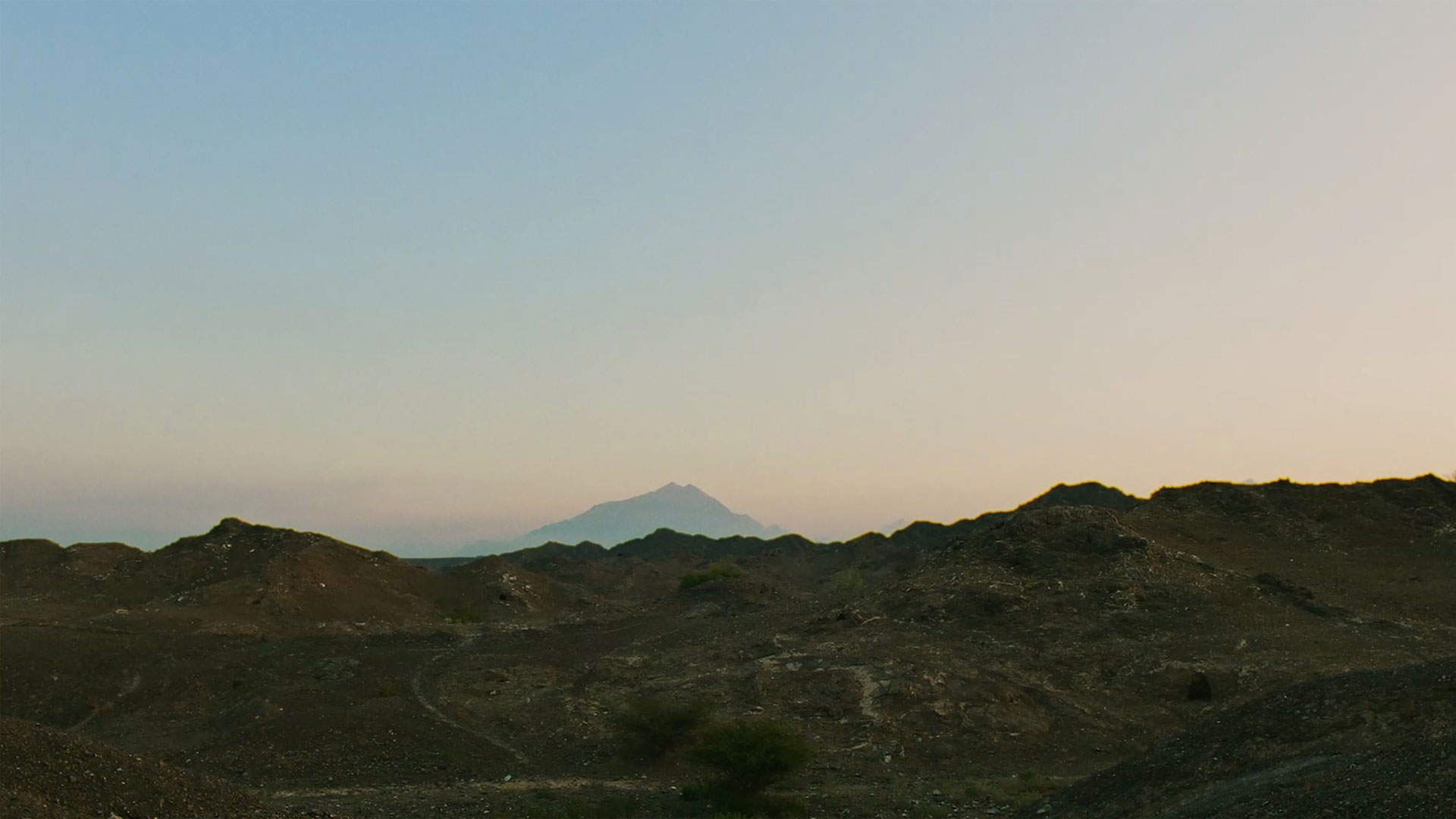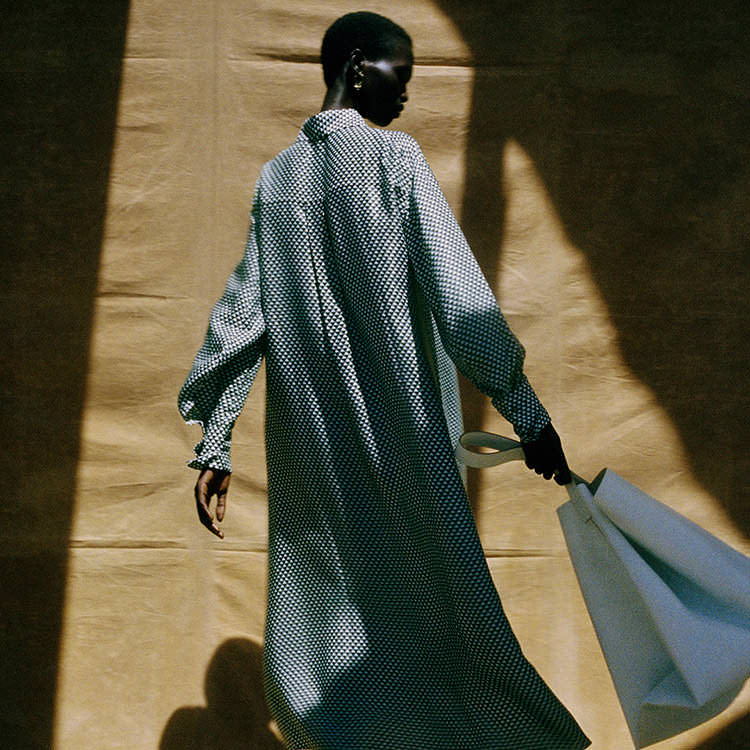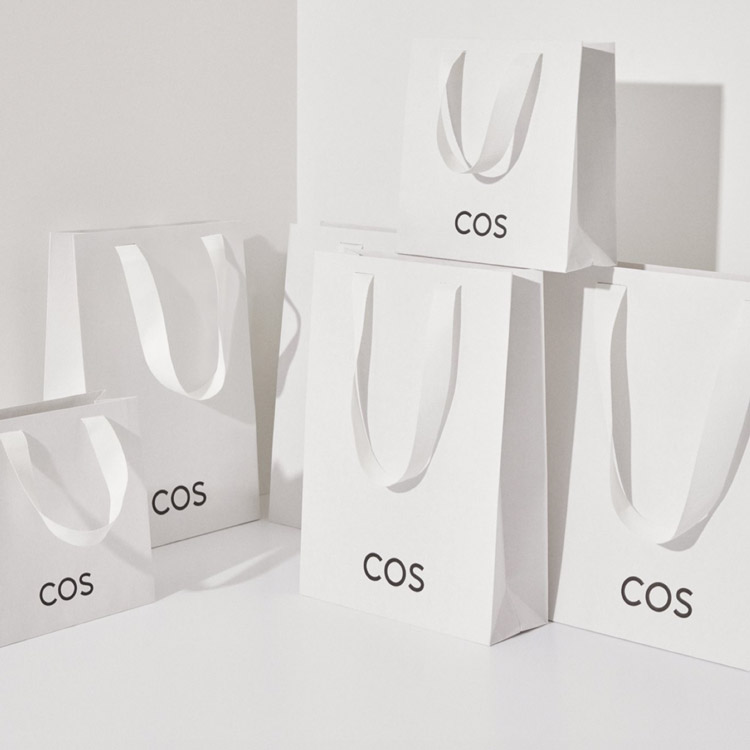CAN YOU SEE THE FUTURE?
Sustainability at COS

In 2020, 76% of the materials in our collection were sustainably sourced.
We've already exceeded that in 2021: with 86% so far. Our goal? To become a climate positive brand, with 100% sustainably sourced or recycled materials.
Since the beginning, our design ethos has put enduring style and quality first. We believe that our choices, our wardrobes and our lives can do more with less.

We are committed to sourcing quality materials that will have less impact on the environment. But it’s not just the fabrics and trims that make a product sustainable, it’s working to ensure that the processes we use are kind to the planet too. At COS, this is what we call our environmental responsibility.
Sustainability is not just about taking actions to minimise our environmental impact. We also focus on our ethical standards as a business, and our commitment towards the many people and communities who make our products. We refer to this as our social responsibility and believe that the strong relationships we have built with our global suppliers are at the heart of delivering on our goals and standards in this area.

Organic
The organic materials we use at COS are grown from organic seeds, which have not been genetically modified in any way. The cultivation process requires no synthetic fertilisers, protecting both our planet and its people.
We’re also exploring new technologies and production methods like regenerative organic farming that prioritises restoring soil health to help fight climate change or processes that use less water.
2020: 17.4% organic materials in total
2021: 39.3% so far

Responsible
At COS, responsibly sourced materials cover three areas: the environment, animal welfare and social responsibility. We partner with independent certification programs to bring you ethical and responsibly sourced materials that are fully traceable.
We’re also exploring new technologies and production methods like regenerative organic farming that prioritises restoring soil health to help fight climate change or processes that use less water.
2020: 54.7% responsible materials in total
2021: 41.7% so far and well on the way to
surpassing last year’s figures by the end of 2021

Recycled and repurposed
Recycled cotton, wool, polyester and nylon reduce our demand on limited natural resources, using less energy and fewer chemicals.
We also gather our own cutting waste and excess material, recycling it to make new repurposed pieces from the cotton, wool and cashmere in our collections.
Due to the complexity of the repurposing process, there aren’t many brands of our size doing this. There's lots more we can do but we’re proud to be leading the way.
We seek out new production methods and innovative ways to bring a higher and higher proportion of recycled fibres into our compositions and retain the high-quality feel you love. We aim to source 30% recycled materials by 2025.
2020: 4.4% recycled and repurposed materials in total
2021: 5.9% so far

Conventional
We believe every piece should have a long lifespan. In order to ensure the materials in our collections meet our high-quality standards, we use conventional fabrics like leather and silk, whilst constantly searching for better alternatives and pushing the industry to improve.
We have converted most of the synthetics we use into recycled alternatives and are making the transition to organic silk as well. By autumn 2021, we’re aiming for all our leather to be chrome-free: a cleaner tanning method.
2020: 23.5% materials in total
2021: 13.1% so far – we hope to reduce this even more
Our packaging
We’re redesigning our packaging right now to incorporate more sustainable and fully recyclable materials. Our number one priority is reducing the volume of materials used, and we’ve already significantly decreased the amount of COS packaging you receive with each order.
We have set goals to reduce the amount of plastic packaging we use to protect our garments during transportation, and are increasing our share of re-usable, recyclable and compostable packaging too. We have trialled replacing plastic bags with reusable fabric bags in our supplier value chain and it is our priority to scale-up these initiatives.
We aim to achieve 100% recycled, reusable or compostable packaging by 2025.

Sustainably sourced fibres and materials explained
There are all kinds of fabrics in our collection that are more sustainably sourced, and we highlight these so you can make considered choices when you shop.
To qualify as a more ‘sustainable fabric’ a garment must be made from at least 50% more sustainable fibres – but our clothes often contain even higher percentages! Recycled and repurposed fibres are the only exception to this rule, so we can make sure the overall quality of the fabric meets our standards.
We’re always seeking out new innovations and production methods to reduce our footprint on the environment too.

“Sourcing materials is hugely important, but to deliver meaningful impact we believe it is also essential to drive positive change in the communities we are a part of and throughout the product’s lifecycle.”
Francesca Lilley, Global Head of Sustainability
We’re on a mission to become a fully transparent, responsible brand in all parts of our business – not only in our material production. We want every person we work with at COS on both a global and local level to experience a safe, fair and equal working environment.
Since we launched, we have been building and nurturing relationships with our suppliers and colleagues throughout the production chain – they are part of our COS family, and they share our values of quality, sustainability and innovation. We’ve been working with many of the same partners since 2007, from our denim specialists in Turkey and cotton growers in India to our manufacturers in Portugal, Romania and China. Working with such a diverse range of partners, whether that be small suppliers specialising in traditional techniques or larger-scale factories with a focus on new technologies, means we have a tremendous amount of shared expertise and passion to take on the future and its challenges together. We look forward to collaborating even more as we continue our journey to becoming a more sustainable brand.

